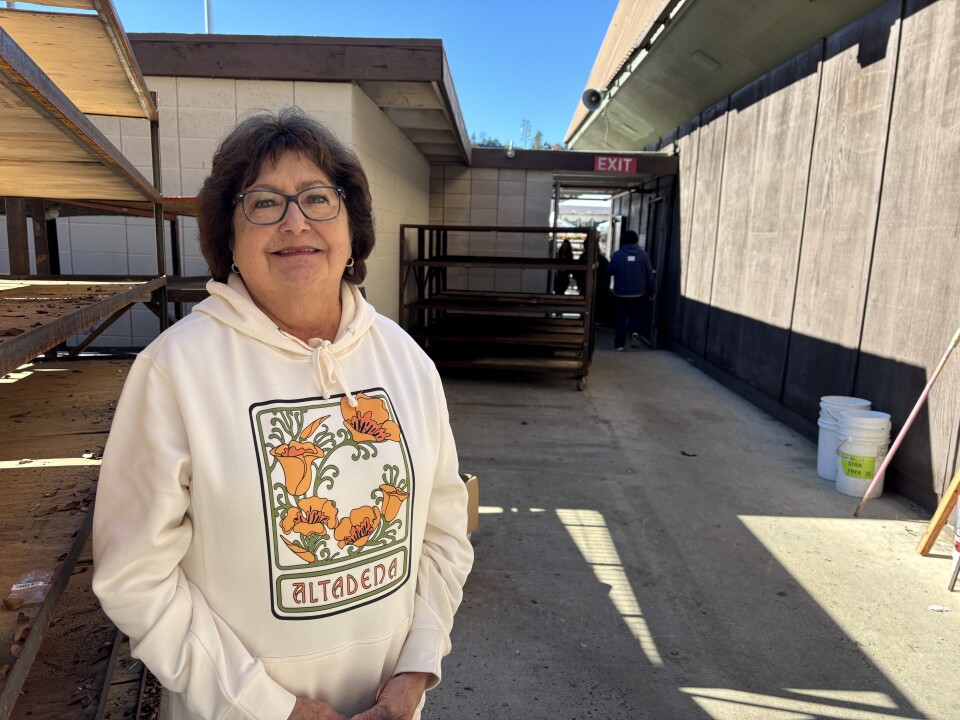California is once again taking steps to limit the influx of dogs from out-of-state puppy mills with a package of laws that take effect in the new year.
AB 519, authored by Assemblymember Marc Berman, D-Menlo Park, prohibits both in-person and online pet brokers from selling dogs, cats or rabbits under a year old.
“The goal is that this will … funnel Californians into the legitimate avenues for either purchasing or rescuing an animal, and it’ll make it harder for bad people to do bad things,” Berman said.
The bill defines a broker as a person or business that sells, processes or transports a pet bred by someone else for profit. It carves out exceptions for shelters, rescues and educational nonprofits teaching kids to care for animals. Service animals and those involved with government agencies, like police dogs, are also exempt.
In addition to the pet broker ban, the “Stop The Puppy Mill Pipeline” legislative package includes two other bills that aim to protect consumers from deceptive third-party pet sellers. The laws are part of a slate of statewide animal protections that will go into effect on Jan. 1, including a ban on declawing cats.
AB 506 by Assemblymember Steve Bennett, D-Ventura, voids any pet contracts that include a nonrefundable deposit or fail to disclose the pet’s medical information and breeder origin. If a contract is voided, the purchaser is entitled to a refund and is not required to return the pet.
SB 312 by state Sen. Tom Umberg, D-Santa Ana, requires dog importers to send health certificates to the buyer and the California Department of Food and Agriculture at least 10 days before the dog enters the state. The CDFA must keep these records for five years and make them publicly available.
Lawmakers introduced these bills to close loopholes that emerged after California’s initial effort to shut down the puppy mill pipeline.
In 2019, California led the nation in banning pet stores from selling dogs from commercial breeders, also called puppy mills, which prioritize profits over animals’ welfare. But the law did not cover online marketplaces, and resellers cropped up to take the place of pet stores, as revealed by a 2024 Los Angeles Times investigation.
The report detailed truckloads of designer dogs, many of them abused and neglected, shipped into the state from commercial breeders in the Midwest. Consumers were advertised puppies from small, local breeders on online marketplaces and unwittingly ended up with sick puppies requiring expensive veterinary care. In one case, a puppy died within weeks.
Brittany Benesi, the senior legislative director for the Western division of the American Society for the Prevention of Cruelty to Animals, said these online marketplaces hide the origin and condition of animals even more than brick-and-mortar pet stores do.
“You can go to these websites and they will tell you the astrological sign of a puppy, but you could not find out who that puppy was bred by,” Benesi said.
She argues that the 2019 bill effectively shut off one valve of the puppy mill pipeline, but the online market took advantage of that absence. The ASPCA, which co-sponsored the legislative package, expects these new laws to shut off the online valve as well.
“I think California is such a large, powerful market that these retailers are going to have a really hard time making up for the loss,” Benesi said. “And it may force their hand to change their business models or their business practices in order to regain the California market.”
Opponents of AB 519 argue the law will have a similar unintended consequence as the 2019 retail ban, which they see as having worsened the underground market for puppies.
“You’re once again removing the ability for Californians to access well-regulated, well-run and folks that have oversight, both in the animal welfare and consumer protection areas,” said Alyssa Miller-Hurley, the vice president for government affairs for the Pet Advocacy Network, a national trade association representing breeders, retailers and distributors. “And it’s just going to exacerbate a problem that, unfortunately, already exists.”
By preventing USDA-licensed pet brokers from selling puppies under a year old, Miller-Hurley said this law will push consumers “into the shadows” and force them to work with unregulated online markets like Craigslist, Facebook Marketplace and even TikTok.
“How do you enforce something … over some random person selling an animal on TikTok Live?” Miller-Hurley said.
Animal welfare groups have long been critical of the standards for licensed dog dealers. In 2024, USDA investigations at commercial breeding operations found more than 800 direct violations, according to an ASPCA report. Only two dealers lost their licenses and not a single dog was removed from the facility.
“The federal laws around animal welfare are very, very low bars to meet,” Benesi said. “The USDA licensure allows for dogs to be kept in wire cages with only six inches of space on any side of them for their entire lives, breeding out litter after litter after litter.”
California Attorney General Rob Bonta supported all three bills, and Benesi said the office has made it clear they are committed to enforcing them. She said groups like the ASPCA, as well as the public, will help monitor and file complaints to the attorney general’s office.
Although they oppose the broker ban, the Pet Advocacy Network supports stronger regulations on the puppy trade, like Umberg’s bill, streamlining pet medical information to a single department.
Previously, California required importers to send certificates of veterinary inspection to individual counties. However, many counties were unaware they were supposed to receive them, and many importers would send them to the CDFA, which deleted the files.
“We’re happy to see California join what most of the states already do, which is allow the state department of agriculture or department health to have oversight of these critical pieces of information,” Miller-Hurley said.
This holiday season, as Californians welcome new furry family members to their homes, Benesi encourages people to consider adopting through a rescue or shelter.
For those working with a breeder, she urges prospective pet owners to see where the puppy was raised, meet its parents in person and vet the breeder as carefully as the breeder should be vetting them.

















